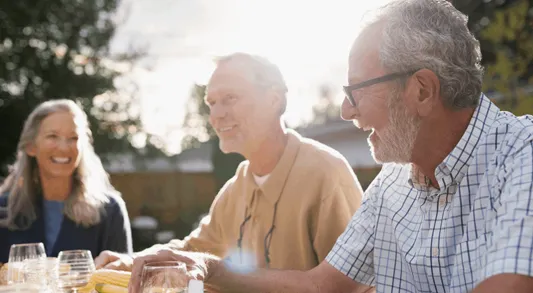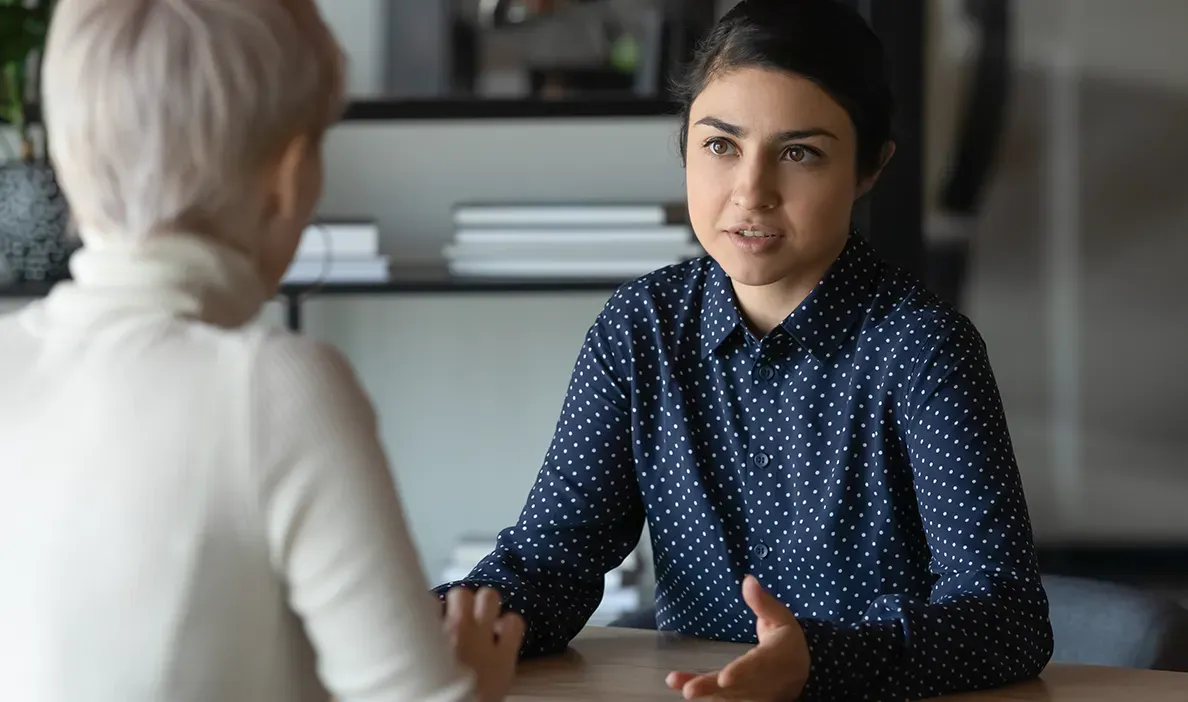Coming to terms with Steve’s diagnosis
I felt a mix of emotions—shock, concern, empathy, and perhaps a sense of helplessness. Our close relationship influenced the intensity of both our feelings.
Steve had previously been diagnosed with – and overcome – kidney cancer. Having been there and supported him through this likely shaped our response and approach to his diagnosis of oesophageal cancer. Some of my initial thoughts and feelings included:
- Empathy: I felt a familiar surge of empathy for Steve—not just for the physical toll but for the emotional rollercoaster the diagnosis brought to him and everyone who loved him.
- Anxiety: I wondered whether Steve instinctively understood the fear, uncertainty, and questions that arise at the start of a cancer journey; I was concerned that the new diagnosis would reignite past trauma.
- Pragmatic: I knew from day one that practical help would be needed to help find expert doctors, navigate treatments, prepare for side effects, or research potential therapies.
- Hopeful: With Steve having survived a cancer diagnosis before, we felt a sense of strength and hope; we were able to offer not just sympathy, but encouragement rooted in his survival.
Being present and consistent from day one
As a caregiver, there is great value in being both present and consistent; to show up, even in small ways such as regular texts, visits, or just sitting with your loved one during appointments. Being present and consistent helped Steve feel less alone and reinforced his trust in us.
Everyone reacts differently to illness—some people want to talk, while others withdraw. I tried to adapt to Steve’s needs rather than my own expectations. When we did talk about his cancer, I always tried to speak openly with him – without jumping to solutions or minimising fears. I tried to avoid saying things like, “That sounds really tough” or “It will all get better.”
It’s important to acknowledge your loved one’s feelings, and understand it’s natural to feel fear, grief, or anxiety. Don’t suppress it. In times of weakness or struggle, I tried to reflect Steve’s strength back to him gently, with comments such as “You’ve handled so much already,” or “It’s ok to be scared—we’ll face this together.”
Your support means more than you can imagine
Having a network of loved ones helped Steve to feel connected and avoid any feelings of anxiety or depression. It helped remind him that he was still deeply connected to life and people, beyond his illness. Knowing others were with him created a sense of safety and motivation to keep fighting.
Support came in different shapes and forms. From gentle nudges to eat, walk or get fresh air, to reminders to attend appointments, our support helped build routines and lift Steve’s morale—especially when he was simply too tired or unwell to push himself.
Some of the ways we supported Steve included:

Facing Challenges Together
Caregiving isn’t always easy. We experienced some incredibly challenging times—from facing the initial diagnosis, to coping with treatment and side effects, and fearing the cancer coming back after successful treatment.
For us, the key to both preparing for and coping with challenges was partnership. We always made sure Steve knew he wasn’t alone and that we were there to support him, no matter what. Below are some of the ways we coped with particularly challenging times:
Initially facing the diagnosis
- Challenge: The shock and fear of learning Steve had cancer – again.
- Coping: Being present as family without trying to fix it. Saying, “I’m here, we’ll face this together.” Letting Steve grieve the news before rushing into any positivity.
Physical toll of treatment
- Challenge: Steve experienced sickness (also known as nausea), extreme tiredness (also known as fatigue), weight loss, pain, and emotional exhaustion.
- Coping: Seeking help with side effects from Steve’s doctors and healthcare team. Offering Steve comfort foods, time to rest, and quiet companionship. Small gestures—like helping him sit outside or listen to music—helped him shift his energy.
Emotional isolation
- Challenge: Steve felt alone, misunderstood, and at times seemed tired of always being “strong.”
- Coping: We encouraged honesty without judgement. Sometimes just sitting beside him silently was more helpful than talking
Fears ahead of scans
- Challenge: We experienced intense fear of bad news before tests or scans.
- Coping: Again, we tried to be a calming presence and would plan something comforting afterward, such as taking Steve out for a favourite meal.
Watching loved ones suffer
- Challenge: Steve felt guilt and helplessness seeing loved ones – his wife, in particular – suffering.
- Coping: We reassured him as much as possible that we were there solely out of love, not obligation. This I believe showed that it’s ok for all of us to have hard moments too.
Preparing for the possibility of recurrence
- Challenge: We feared the cancer coming back after successful treatment.
- Coping: We made sure conversations about the possibility of recurrence were open and honest. We tried to not live in fear but live in control. We encouraged Steve to voice any concerns, questions and wishes regarding future care or treatment decisions.
And remember, it’s a marathon, not a sprint
It’s so important for caregivers to carve out time out to take care of themselves and recharge. This may mean different things to different people – maybe it’s going for a walk, journaling, or talking to a counsellor.
It’s important to be honest with yourself – you don’t have to pretend to be invincible in your role as a caregiver. It’s ok to say, “I’m scared too, but I’m here for you.”
Click here to read Part 2 of Tim's story where we hear how caregiving changed Tim's perspectives on life and love.






